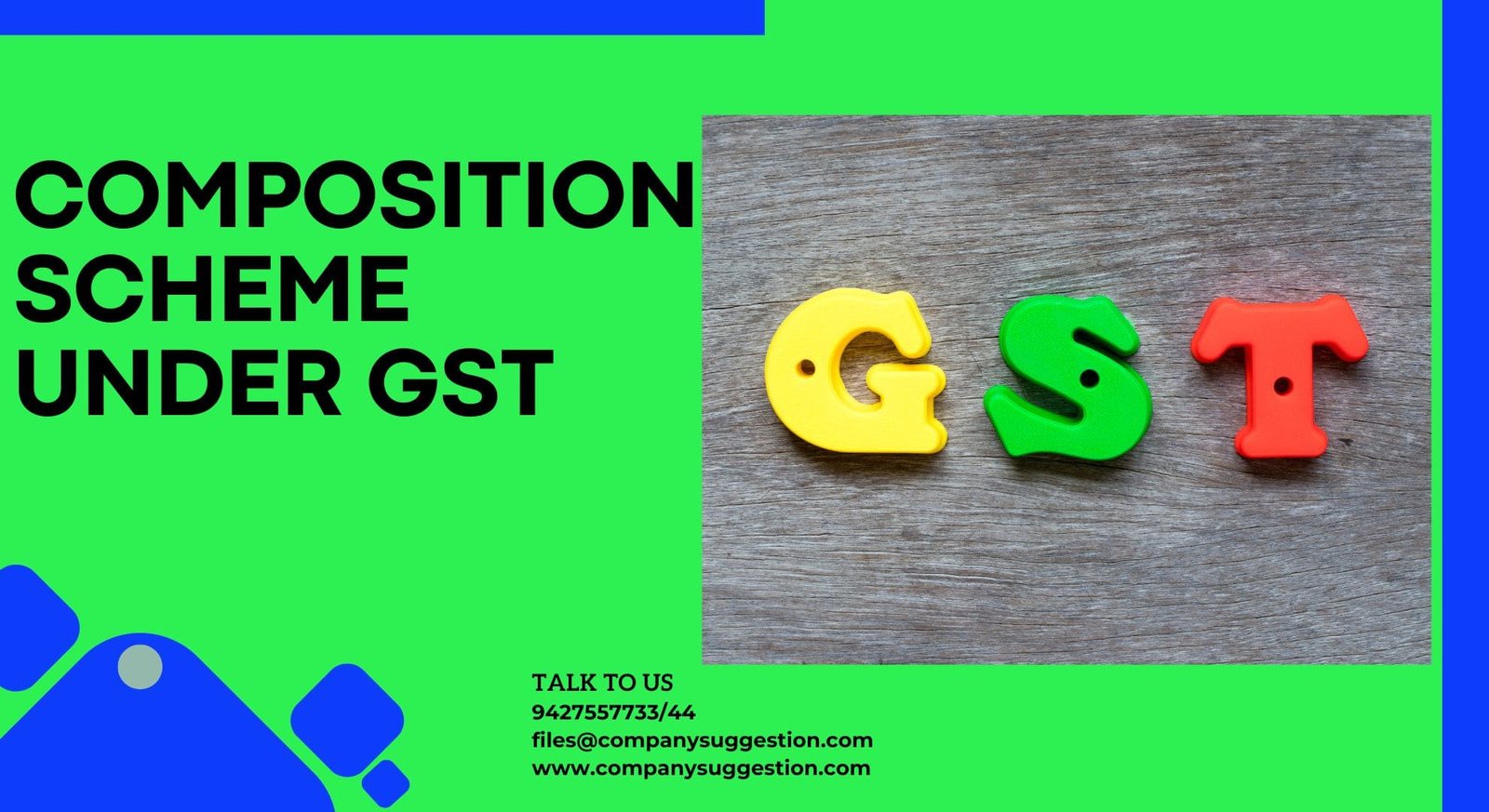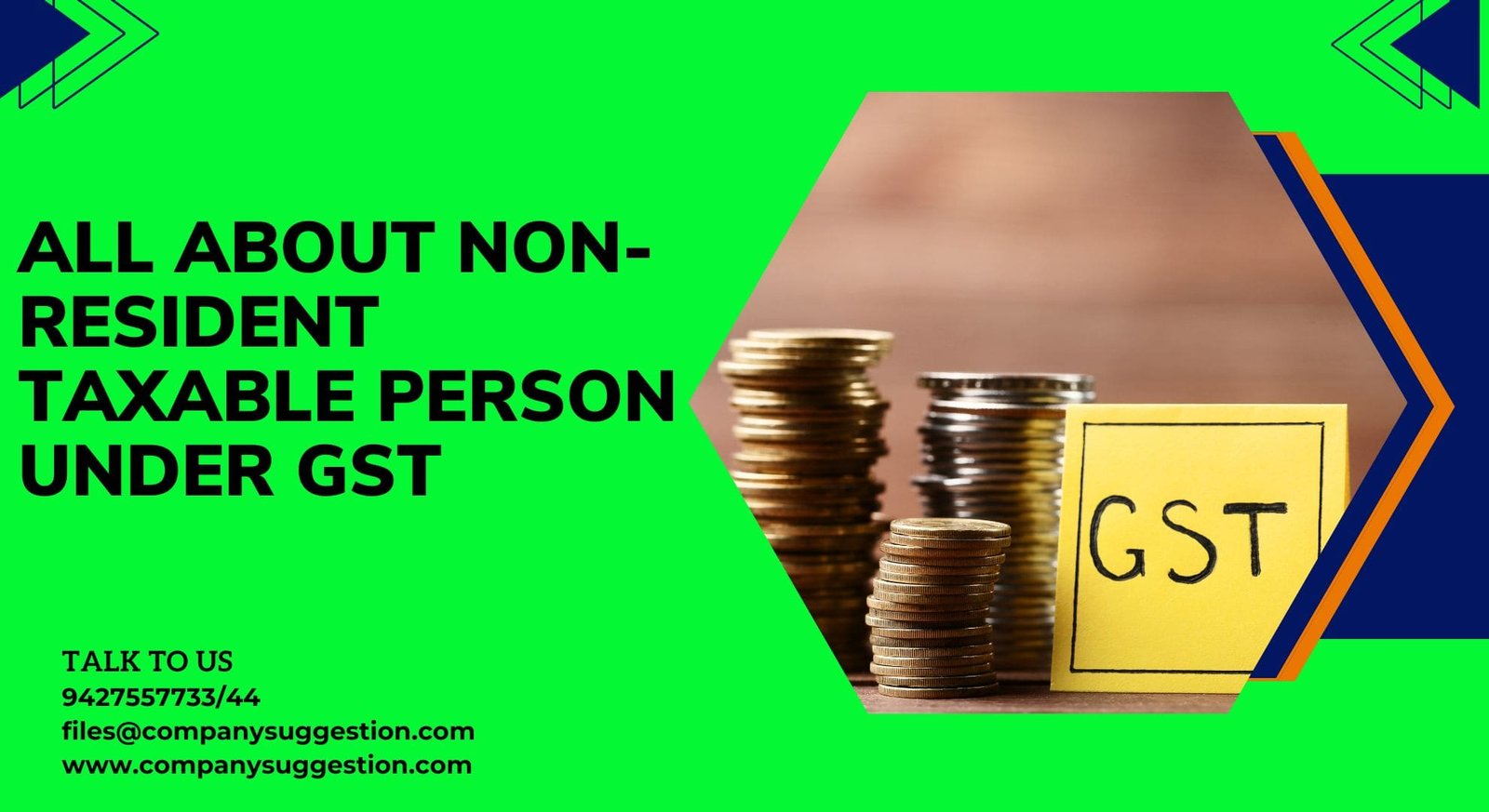COMPOSITION SCHEME UNDER GST
Composition scheme under GST is a simple and accessible scheme available for the small taxpayers whose annual turnover is equal to or less than Rs.1.5 crore and Rs. 75 lakh in case of north- eastern states (Manipur, Meghalaya, Tripura, Assam, Mizoram, Sikkim, Arunachal Pradesh, Nagaland) and Himachal Pradesh. Now, small taxpayers gets rid of complex GST formalities as it includes lot of paperwork and compliances and able to pay GST at fixed rate of turnover.
Under composition scheme filing gets easier as the taxpayer has to file only one quarterly return (GSTR 4) and one annual return (GSTR 9A) . while normal taxpayers has to file 3 mothly GST returns ( GSTR1,GSTR2,GSTR3) and One annual return (GST9) .Turnover of all businesses registered with same PAN should be taken into consider while calculating turnover. As per the CGST (Amendment) Act, 2018, a composition dealer can also supply services to an extent of 10% of turnover, or Rs.5 lakhs, whichever is higher.
Conditions for availing composition scheme
- Non-availability of Input tax credit (ITC) for the composition scheme.
- The dealer cannot supply the goods which are kept out of GST.
- No interstate supply of goods.
- Necessary to mention the word “composition taxable person” on every bill issued by him.
- Need to mention the word “composition taxable person” on every sign board, notice etc.
- Taxpayer has to pay tax at normal rate for transactions under RCM (reverse charge mechanism).
- A person with the different segment of business registered with the SAME PAN have to opt for composition scheme collectively otherwise ineligible for the scheme.
- Composite dealer cannot issue tax invoice. They can issue bill of supply.
Who cannot avail the composition scheme
- Manufacturer of ice cream , tobacco , pan masala & other substitute
- Business which is engage in inter-state supplies
- Non-resident taxable person or casual taxpayer
- Purchase made from an unregistered suppliers by individual or businesses.
- Supply goods through e-commerce operator.
GST rates under composition scheme
| Business type | CGST | SGST | TOTAL |
| Manufacturer and traders (goods) | 0.5% | 0.5% | 1% |
| Restaurant without serving alcohol | 2.5% | 2.5% | 5% |
| Service provider | 3% | 3% | 6% |
How to opt for composition scheme
A taxpayer has to file GST CMP-02 by logging on to GST portal to opt for the composition scheme. This has to be file before the beginning of the financial year by the taxpayer who want to opt for the composition scheme.
Advantages of opting composition scheme
1. Lower Tax Liability
Businesses under the Composition Scheme pay tax at a lower rate (between 0.5% to 6%, depending on the type of business) compared to regular GST rates.
2. Simplified Compliance
Composition dealers need to file only one quarterly return (GSTR-4) instead of multiple monthly returns like regular taxpayers.
This significantly reduces the paperwork and compliance burden.
3. Reduced Record-Keeping
Businesses opting for the scheme are not required to maintain detailed records of inward and outward supplies, which is a major relief for small businesses.
They also do not need to issue tax invoices; instead, a bill of supply is sufficient.
4. Cash Flow Benefits
Since the tax liability is lower and there is no requirement to pass on the GST liability to customers, composition dealers may have better control over their cash flow.
5. Increased Business Focus
With reduced administrative and compliance burdens, business owners can focus more on growing their business rather than dealing with tax complexities.
6. No Input Tax Credit
While not a direct benefit, this point is worth noting. Businesses under the Composition Scheme are not eligible to collect GST from customers or claim Input Tax Credit (ITC), simplifying their dealings with suppliers and customers.
7. Suitable for Small Businesses
It is ideal for small businesses, restaurants, or manufacturers with a turnover of up to ₹1.5 crore (₹75 lakh for certain states), as it offers an easy compliance mechanism with lower taxes.
Disadvantages of opting composition scheme
Limited to Intra-State Supply: Businesses registered under the Composition Scheme can only make intra-state supplies (i.e., within the same state). They are not allowed to engage in inter-state trade, which limits business expansion opportunities.
Not Eligible for Input Tax Credit (ITC): Composition dealers cannot claim input tax credit on the purchases made. This increases their cost as they have to bear the full tax burden on purchases.
Restricted Business Types: The scheme is not available for certain businesses, such as service providers (except restaurants not serving alcohol), e-commerce operators, and manufacturers of notified goods.
Low Threshold for Turnover: The scheme is available only for businesses with an annual turnover of up to ₹1.5 crore (₹75 lakh for special category states). This restricts its applicability to small businesses.
Tax to be Paid from Own Pocket: Unlike the regular GST scheme, where taxes are collected from customers, under the Composition Scheme, the dealer has to pay tax out of their own pocket based on turnover.
Ineligible for Large Contracts: Many larger companies and government agencies prefer to deal with regular taxpayers who can provide proper GST invoices for claiming input tax credits, limiting business opportunities.
No GST Collection: Dealers under this scheme cannot collect GST from customers, which might create the impression of a less transparent pricing structure.
Limited Brand Perception: Businesses under the composition scheme might be viewed as smaller or less professional because they are not providing proper GST invoices.
Conclusion
The Composition Scheme is a beneficial option for small businesses with limited turnover, offering simplified compliance and reduced tax rates. However, businesses with plans for growth or those heavily involved in interstate trade may find the limitations restrictive. It’s crucial to weigh the benefits against the restrictions before opting for this scheme under GST.
GST compliances are complex process so it is advisable to take professionals assistance for GST Registration and Compliances. By seeking expert advice, you can mitigate the risk of non-compliance, streamline the conversion process, and establish a solid foundation for the future operations of your Business. If you have any doubt regarding this and for compliance services, then connect with company suggestion and our team of experts will guide you.













